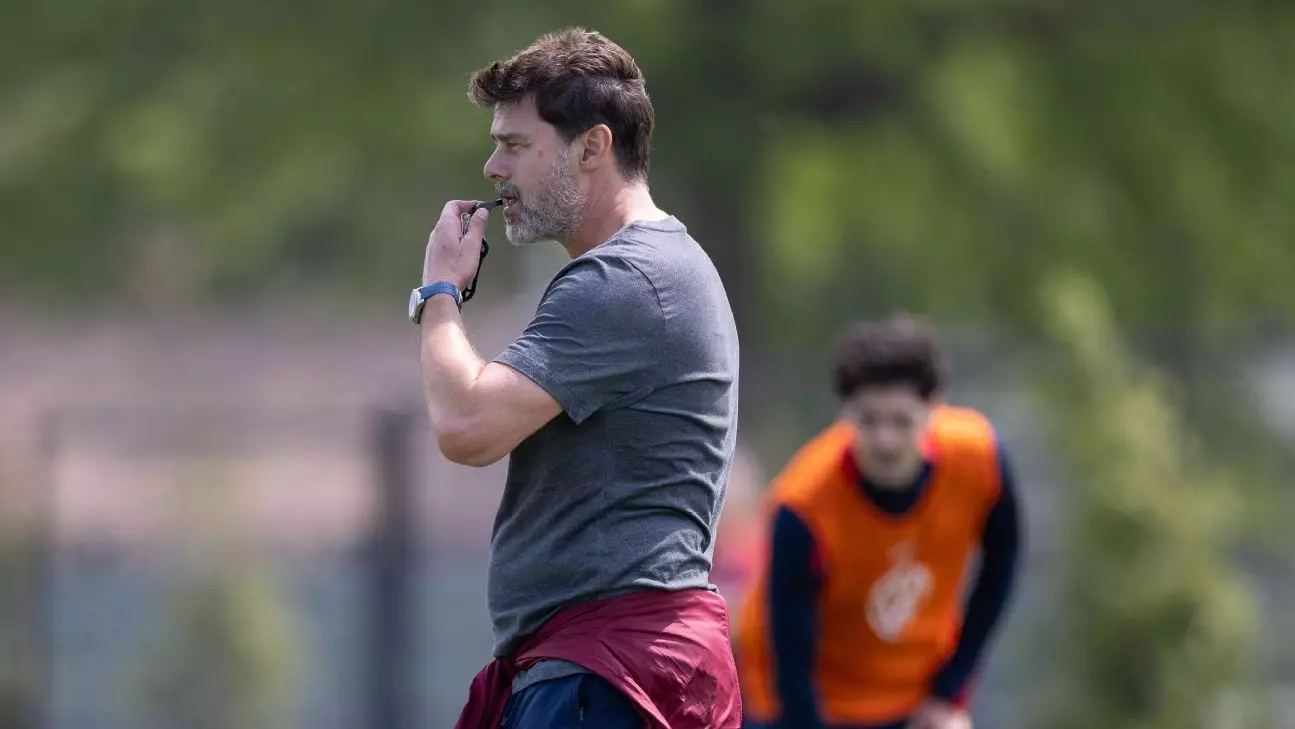In the realm of international soccer, the path to success is rarely straightforward, and the U.S. Men’s National Team (USMNT) is about to embark on a critical journey in the Concacaf Gold Cup. Under the guidance of head coach Mauricio Pochettino, the team’s upcoming campaign is marked by a blend of daunting challenges and an encouraging message of resilience and trust in each player. With the World Cup on the horizon, this Gold Cup serves as a vital proving ground for emerging talent, as well as an opportunity to mold a cohesive unit capable of navigating the pressures of the international stage.
Navigating Adversity and Building Trust
The landscape of this Gold Cup roster is reshaped by unforeseen obstacles, with key players such as Christian Pulisic and Antonee Robinson sidelined due to various health and club commitments. Pochettino’s adherence to fostering an environment where trust reigns supreme is commendable. He acknowledges the challenges—the absence of seasoned players—but he emphasizes the importance of adapting to these circumstances. Rather than bemoaning the missing talent, the focus shifts to empowering those who are available.
By fielding a team that features a mixture of experienced players alongside seven newcomers, Pochettino is pioneering a philosophy that prioritizes competition. He urges the team to “fight for a place,” which might just bolster the drive among less experienced members of the squad. This infusion of freshness could be a double-edged sword; the young players might lack the polish of their seasoned counterparts but could surprise and invigorate the team spirit with their enthusiasm and raw potential.
Changing the Mentality
Central to Pochettino’s strategy is an urgent call for mental recalibration within the squad. Tyler Adams, the current U.S. World Cup captain, relays Pochettino’s directive: the mentality must be resolute. The focus must extend beyond mere participation; it requires a commitment to professionalism and performance. This approach, particularly in light of Pochettino’s thinly veiled critiques of previous setups, suggests an awakening within the squad—a shift from mere talent to collective hard work and mental fortitude.
Pochettino’s insistence on balance is another critical factor. In a sport that demands not just skill but also the right attitude and approach, the players are called to harmonize their professionalism with personal well-being. As they traverse this path, juggling intense training and commitments with personal lives, the challenge will be to maximize performance without burning out. The directive to embrace balance translates into a broader fusion of performance and self-care—something all athletes must master in the high-pressure world of international soccer.
A Chance to Define Legacy
With the World Cup looming just around the corner, the stakes couldn’t be higher for this USMNT squad. While many may question whether the remaining roster is “good enough” to clinch the Gold Cup, such inquiries detract from the essential themes championed by Pochettino. The coach’s focus on this segment of the journey underscores the essence of competitive spirit: it is less about expected outcomes and more about the opportunities that arise from the challenges faced.
For players, especially those with fewer international appearances, the Gold Cup represents a stage to impress not only coaching staff but also the soccer community at large. The competition can be a crucible in which capabilities are tested, and narratives are rewritten. Each match offers a canvas for these players to paint their aspirations and set the tone for their future in U.S. soccer.
While the Pochettino era is just beginning, its undercurrents are potent—carrying with them the promise of reinvigoration for a team seeking to carve its name in the annals of soccer history. The blend of opportunity, expectation, and growth presents an exhilarating mix for both players and fans, making this Gold Cup not just a tournament, but rather, a vital chapter for the future of U.S. soccer.

